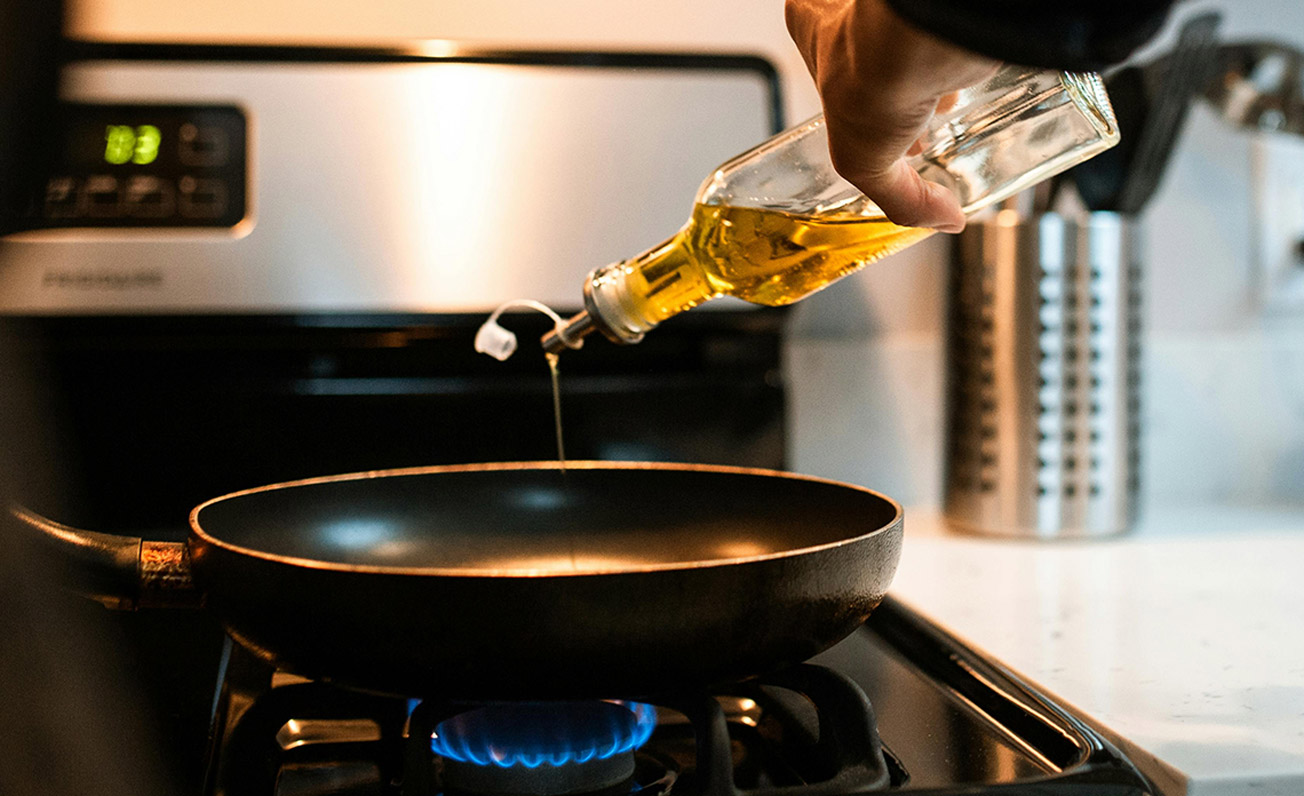Olive oil is a staple of Mediterranean cuisine, renowned for its nutritional benefits and unique taste. But can you really cook everything with olive oil?
Olive oil for cooking and frying: is it suitable?
Olive oil and pan cooking
Contrary to popular belief, olive oil handles cooking well. Its smoke point — the temperature at which it starts to degrade and produce harmful compounds — varies depending on quality. A good-quality extra virgin olive oil can be heated up to around 190°C, making it perfectly suitable for pan cooking and stir-fries.
For meats, fish, or sautéed vegetables, olive oil gives a nice caramelization and preserves the natural aromas of the food. It also works well for slow cooking like stews, where it adds extra aromatic richness.
Olive oil for frying: good or bad idea?
For short frying at moderate temperatures (around 170–180°C), olive oil is an excellent choice. It gives fried foods a unique flavor and crispy texture. However, for long or high-temperature frying (above 200°C), it’s better to choose a more heat-resistant oil, such as peanut or sunflower oil, to avoid rapid oxidation.
Replacing butter with olive oil in baking: a delicious alternative?
Why use olive oil in baking?
Replacing butter with olive oil in baking is absolutely possible and offers several benefits. Olive oil provides a softer texture to cakes and a subtle flavor that can enhance certain recipes. It’s commonly used in chocolate cake or strawberry tart to bring out the flavors. Plus, it’s easier to digest than butter and contains healthy fatty acids that are good for the body.
How to replace butter with olive oil in recipes?
To bake with olive oil, replace 100 g of butter with about 80 ml of olive oil. This substitution works well in recipes like cakes, muffins, shortbread cookies, and certain pie crusts. However, it’s best to use a mild-flavored olive oil so as not to overpower other ingredients — especially in delicate desserts like madeleines or brioches. Try using mild fruity olive oils to add smooth, round notes to your baking.
Olive oil for sauces and dressings: an essential?
Olive oil and cold sauces
Olive oil is perfect for cold sauces like mayonnaise or aïoli. Its fluid texture and emulsifying properties help create smooth, tasty sauces.
In vinaigrettes or on its own, it adds roundness and a unique character that elevates salads, grilled vegetables, and carpaccios. For milder flavors, you can mix it with a more neutral oil, such as canola.
Olive oil for marinades
Thanks to its penetrating qualities, olive oil is ideal for marinating meats, fish, and vegetables. It allows flavors to better infuse the food and helps tenderize them. Its light, fluid texture and unique aroma enhance dishes without making them heavy. Discover several marinade recipes here!
Conclusion: Can olive oil replace all other fats?
In conclusion, while olive oil is an essential ally in the kitchen, it’s important to use it appropriately based on the dish and specific needs. For delicate pastries like macarons, a more neutral oil is recommended, as well as for very high-temperature cooking where more resistant oils are better suited. Still, olive oil remains an exceptional product, rich in health benefits and extremely versatile. When chosen wisely, it can replace most other fats while adding a unique flavor to your dishes.


